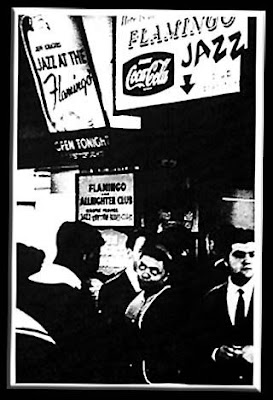The Winterland Ballroom, often referred to as Winterland Arena, was an old ice skating rink and 5,400 seat music venue in San Francisco, California. Located at the corner of Post Street and Steiner Street, it was built in 1928 for the then astronomical cost of $1 million. Opening on June 29, 1928, it was originally known as the "New Dreamland Auditorium." Sometime in the late 1930s, the name was changed to Winterland and converted to exclusive use as a music venue in 1971 by rock promoter Bill Graham.
Bill Graham began to occasionally rent the venue for larger concerts that his nearby Fillmore Auditorium could not properly accommodate. After closing his New York City venue, Fillmore East, in 1971, he began to hold regular weekend shows at Winterland. Acts that played there, included Bruce Springsteen, The Rolling Stones, Queen, Cream, The Doors, Jimi Hendrix, Led Zeppelin, Lynyrd Skynyrd, Styx, Allman Brothers Band, The Grateful Dead, Jefferson Airplane, Humble Pie, Deep Purple and Slade, the latter (in this instance) to promote their album, Flame, although they had previously appeared there on 5th June1973 being broadcast on the legendary 'King Biscuit Flower Hour'. A great number of the best-known rock acts from the 1960s and 1970s played Winterland or played two blocks away across Geary Boulevard at the original Fillmore Auditorium. Frampton Comes Alive! (the 4th best-selling live album ever) was recorded, in part, at Winterland.
During it's final month of existence as a live venue, shows were booked nearly every night. Winterland closed on New Years 1978/79 with a concert by the Grateful Dead, New Riders of the Purple Sage, and The Blues Brothers. The show lasted for over eight hours, with the Grateful Dead's performance (documented on DVD and CD as The Closing of Winterland) lasting nearly six hours itself. The final show was simulcast on radio station KSAN-FM and also broadcast live on the local PBS TV station KQED. Winterland was eventually torn down in 1985, and was replaced by apartments.
Although Slade saw their biggest commercial success between 1972 and 1974, this show, culled from the archives of promoter Bill Graham, shows they were still red-hot as a live act in 1975.
Opening with 'Them Kinda Monkeys Can't Swing', they move next into 'Bangin' Man', a song that described life as a rock star in the mid-1970's. Another highlight is an extended version of "Let The Good Times Roll," which moves into "Get Down and Get With It." There are more big hits thrown in for good measure, making this a complete Slade show.
Slade embarked upon a five-year run of constant chart success in their homeland and were huge in Europe and Australia. Despite many attempts at breaking the U.S. market, they never really caught on with the record-buying public but were influential nonetheless with Gene Simmons and Paul Stanley, who witnessed them at New York’s Academy. Simmons has recently admitted that without Slade, there would have been no KISS.
It would take America another decade before Slade received their first chart hits with the early-‘80s songs, My Oh My and Run Runaway. This success followed the publicity they received after Quiet Riot had scored successive #1 U.S. hits with covers of two of Slade's biggest hits Cum On Feel The Noize and Mama Weer All Crazee Now, the latter which can be heard here as the show's closer.
This show was recorded in the Fall of 1975 while Slade was touring to promote the soundtrack LP from their feature film Flame. It had been released to critical acclaim in their homeland and many of the songs here are from that album, including 'How Does It Feel?', widely regarded as the band’s finest moment. The classic hits are represented too, including 'Gudbye T’Jane', 'Far Far Away' and 'Mama Weer All Crazee Now', as well as long-time stage favorite 'Just Want A Little Bit', which features the blistering bass of virtuoso Jimmy Lea.
The band were second on the bill between the Frankie Miller Band, and headliners Ten Years After, and not Robin Trower as has been erroneously recorded previously. The gig was filmed by Graham's organisation to be used in between acts at his various venues that he owned throughout the States. It wasn't the easiest of crowds to get going, the band were clearly not on top form nor enjoying the experience of being heckled and spat at.
- Them Kinda Monkees Can't Swing
- The Bangin' Man
- Gudbuy T'Jane
- Thanks For The Memory
- How Does It Feel
- Just Want A Little Bit
- Let The Good Times Roll
- Get Down & Get With It
- Mama Weer All Crazee Now
The Download Link is here: Download
Filename: Winterland 1975.rar Filesize: 15.01 MB
Thanks to Hubert "Yes, you can use my photos" Tung for the photographs and memories and Steve Marsh for the information. The audio is a Scott Samuels 're-touch' for which I am, once again, very grateful for.









